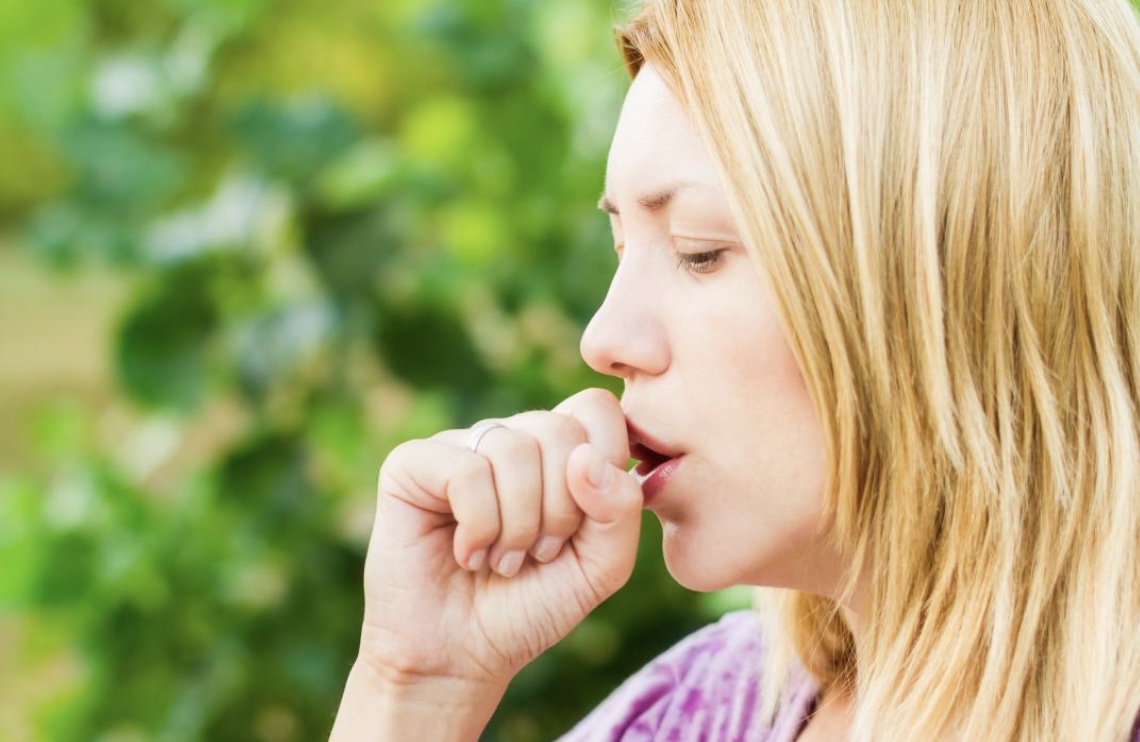When you cough, that is your body trying to get rid of an irritant. When your throat gets irritated by something, your nervous system sends an alert to your brain which in turn responds by communicating to your chest and abdominal muscles to contract and expel a burst of air. A cough helps protect your body against irritants like mucus, smoke, and allergens such as dust. Coughing is usually a symptom of many illnesses and conditions and you can guess the cause of a cough from its characteristics. A cough can be irritating and make it difficult to do some things like speak on the phone or even leave the house.
Types of coughs
Wet cough
Also known as a productive cough, a wet cough is a cough that brings up mucus. It is commonly caused by a cold or the flu. It exhibits symptoms such as runny nose, fatigue and postnasal drip. It usually sounds wet because your body is pushing out mucus through the throat, nose, lungs and airways. Wet coughs can last from less than three weeks up to more than 8 weeks in chronic cases. Wet coughs are caused by conditions such as asthma, chronic bronchitis, pneumonia, acute bronchitis and the flu.
Treatment for wet cough
For babies under the age of one, use saline drops in the nasal passage and then wipe the nose with a bulb syringe. You can also treat them with a cool-mist humidifier. It is not advisable to give over-the-counter medication to babies under the age of two. For children above the age of 1, one and a half teaspoons of honey before bedtime reduces cough and improves the quality of sleep for children. Adults can treat mild wet coughs with over-the-counter medication but if it persists for more than three weeks seek other treatment.
Dry cough
This is a cough that feels like a tickle at the back of your throat and does not bring up mucus. It occurs when there is inflammation in your respiratory tract but there is no excess mucus to cough up. Dry coughs are caused by respiratory infections such as a cold or the flu. It can also be caused by sore throat, tonsillitis, croup, laryngitis, sinusitis and allergies.
Treatment for dry cough
For babies, their dry cough is often in a mild form and does not even require treatment. You can use a humidifier to make them more comfortable. Older children can use cough drops to treat sore throats or a humidifier. However, if their cough persists for more than three weeks, seek other medical assistance. For adults, if the dry cough persists you may need antibiotics, antacids, and asthma medications. Alternatively, if you are looking for a more natural remedy, you can look upon various sources on how to use essential oils for cough.
Paroxysmal cough
This is a type of cough that comes with violent and uncontrollable coughing that is painful and exhausting. The violent coughing is caused by a bacterial infection called whooping cough. Babies are at a high risk of contracting whooping cough and can be life-threatening. However, babies aged 2 months and above can get vaccinated against whooping cough. Paroxysmal cough is caused by whooping cough, pneumonia, asthma, and tuberculosis.
Treatment of Paroxysmal cough
Antibiotics are necessary for people of all ages to treat Paroxysmal cough when contracted.
Croup cough
This is a viral infection that primarily targets children aged 5 and below. It causes the upper airway to swell and makes it difficult for children to breathe because they already have narrow airways. Croup cough causes children to struggle to breathe, breathe fast and make high-pitched noises when inhaling. This can be scary for both children and parents.
Treatment of Croup cough
It often just passes on its own without any remedies. But you can use some home remedies to treat it.
Conclusion
There are many types of coughs and most often do not persist for long. If a cough persists and any of the remedies we have discussed do not work, please seek medical assistance.






